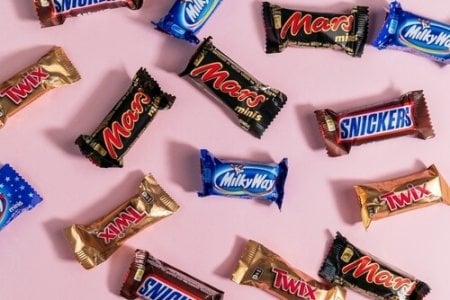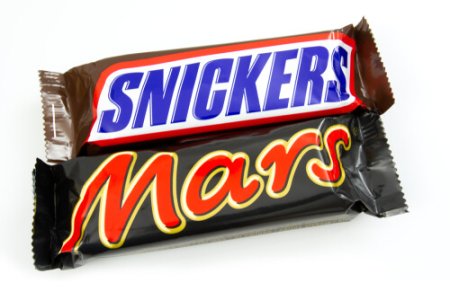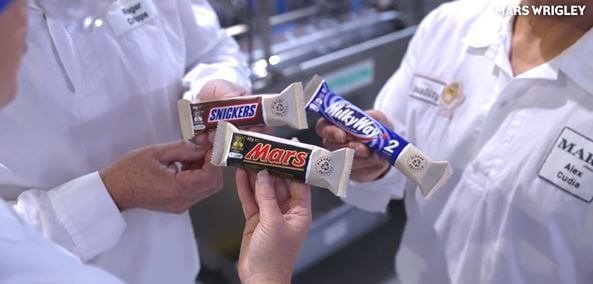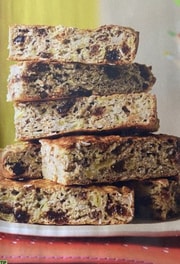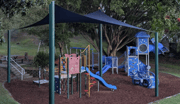Popular chocolate bars are getting a major makeover – are your favourite treats affected?
- Replies 3
Get ready for some sweet news. Some significant changes are coming to not one, not two, but three of Australia's favourite chocolate bars.
So, if you’re a fan of iconic chocolate bars like Mars Bar, Snickers and Milky Way, you’ll want to pay attention to this.
Mars Wrigley, the company responsible for our beloved chocolate bars, has announced that Mars Bar, Snickers, and Milky Way will now be wrapped in recyclable and paper-based packaging.
Australia is leading the way in this major change, being the first market in the world to experience the upgrade.
The new packaging is available in stores and results from a three-year project Mars Wrigley has been working on to make their wrappings more environmentally friendly.
The news of the recyclable packaging was first announced late last year. This move by manufacturer Mars Wrigley Australia was made to cut more than 360 tonnes of plastic from its chain – enough to stretch from Melbourne to London and back. You can read more about this announcement here.
Mars Wrigley Portfolio Director Richard Weisinger shared that the company was ‘excited’ about this change.
‘After a three-year project to redesign our packaging for our bars portfolio, seeing our chocolate bars now in store in our new paper-based wrapping is incredibly exciting for us,’ he explained.
All chocolate bars produced by the company will aim to be recyclable, reusable or compostable by 2025. This puts them firmly in line with the Australian Packaging Covenant Organisation’s 2025 National Packaging Targets.
The new eco-friendly packaging resulted from extensive research and development trials and locally-driven innovation from Mars Wrigley’s manufacturing site in Ballarat. The paper-based packaging is recyclable through bins across Australia – which helps consumers easily recycle the rubbish via their kerbside bins.
It was reported that the Ballarat-based team that led the project is pioneering paper-based sustainable packaging solutions for the Mars Wrigley business worldwide.
Andrew Leakey, General Manager of Mars Wrigley Australia, said that transitioning to paper-based packaging for locally-made chocolate bars was a ‘significant milestone’ in the company’s sustainability journey.
‘Mars’ ongoing investment in local R&D has allowed us to be agile and create solutions that have a positive impact on our environment, meet our stringent quality and food safety standards but are also convenient for our consumers to recycle via kerbside recycling,’ he stated.
However, it’s important to note that the pack is not entirely plastic-free. Mars Wrigley released a statement regarding its composition.
It said: ‘Our paper-based packaging is made up of 86 per cent paper, a thin plastic barrier to ensure the quality and freshness of the product is maintained, seals and inks for labelling.’
‘While the packaging features a very thin plastic barrier, it remains able to be recycled via kerbside recycling as validated by APCO’s PREP tool,’ it continued.
Coles General Manager of Sustainability Brooke Donnelly also welcomed the move. She said it was ‘encouraging’ to see Australian manufacturers take steps towards providing eco-friendly alternatives to plastic packaging.
‘In order to drive further innovation and achieve mutual sustainability goals, it’s important for organisations to collaborate and work together. With businesses increasingly measured on their impact on society and the environment, sustainable innovation can be a key driver of both societal and commercial success,’ she claimed.
To launch the new packaging, Mars Wrigley announced its latest campaign, Biggest Thing in Wrap 2023, supported by local rapper Kobie Dee.
‘I feel very hopeful when leading companies like Mars Wrigley prioritise sustainability. They have the power and capacity to lead by example so others follow,’ he shared before adding that as an Aboriginal man, caring and protecting the country is ‘very important’ to him.
‘Aboriginal people have a strong connection to land and Country, and we need to do what we can to protect and sustain it,’ he stated.
Mr Weisinger added that Mars Wrigley is thrilled to work with the Australian rapper.
‘Kobie has an innate gift for storytelling, genuine passion for sustainability and an ability to connect people together,’ he explained.
This isn’t the first time a multi-billion-dollar company has decided to switch from plastic to environmentally-friendly alternatives. Fast food giant McDonald’s stunned consumers by quietly rolling out reusable containers in some of its restaurants worldwide.
According to McDonald’s, this move was made to build climate resilience. It was reported that the company is targeting 100 per cent recycled or renewable packaging by the end of 2025. You can read more details about this change in this article.
 Are you excited about this new initiative? Let us know what you think in the comments below!
Are you excited about this new initiative? Let us know what you think in the comments below!
So, if you’re a fan of iconic chocolate bars like Mars Bar, Snickers and Milky Way, you’ll want to pay attention to this.
Mars Wrigley, the company responsible for our beloved chocolate bars, has announced that Mars Bar, Snickers, and Milky Way will now be wrapped in recyclable and paper-based packaging.
Australia is leading the way in this major change, being the first market in the world to experience the upgrade.
The new packaging is available in stores and results from a three-year project Mars Wrigley has been working on to make their wrappings more environmentally friendly.
The news of the recyclable packaging was first announced late last year. This move by manufacturer Mars Wrigley Australia was made to cut more than 360 tonnes of plastic from its chain – enough to stretch from Melbourne to London and back. You can read more about this announcement here.
Mars Wrigley Portfolio Director Richard Weisinger shared that the company was ‘excited’ about this change.
‘After a three-year project to redesign our packaging for our bars portfolio, seeing our chocolate bars now in store in our new paper-based wrapping is incredibly exciting for us,’ he explained.
All chocolate bars produced by the company will aim to be recyclable, reusable or compostable by 2025. This puts them firmly in line with the Australian Packaging Covenant Organisation’s 2025 National Packaging Targets.
The new eco-friendly packaging resulted from extensive research and development trials and locally-driven innovation from Mars Wrigley’s manufacturing site in Ballarat. The paper-based packaging is recyclable through bins across Australia – which helps consumers easily recycle the rubbish via their kerbside bins.
It was reported that the Ballarat-based team that led the project is pioneering paper-based sustainable packaging solutions for the Mars Wrigley business worldwide.
Andrew Leakey, General Manager of Mars Wrigley Australia, said that transitioning to paper-based packaging for locally-made chocolate bars was a ‘significant milestone’ in the company’s sustainability journey.
‘Mars’ ongoing investment in local R&D has allowed us to be agile and create solutions that have a positive impact on our environment, meet our stringent quality and food safety standards but are also convenient for our consumers to recycle via kerbside recycling,’ he stated.
However, it’s important to note that the pack is not entirely plastic-free. Mars Wrigley released a statement regarding its composition.
It said: ‘Our paper-based packaging is made up of 86 per cent paper, a thin plastic barrier to ensure the quality and freshness of the product is maintained, seals and inks for labelling.’
‘While the packaging features a very thin plastic barrier, it remains able to be recycled via kerbside recycling as validated by APCO’s PREP tool,’ it continued.
Coles General Manager of Sustainability Brooke Donnelly also welcomed the move. She said it was ‘encouraging’ to see Australian manufacturers take steps towards providing eco-friendly alternatives to plastic packaging.
‘In order to drive further innovation and achieve mutual sustainability goals, it’s important for organisations to collaborate and work together. With businesses increasingly measured on their impact on society and the environment, sustainable innovation can be a key driver of both societal and commercial success,’ she claimed.
To launch the new packaging, Mars Wrigley announced its latest campaign, Biggest Thing in Wrap 2023, supported by local rapper Kobie Dee.
‘I feel very hopeful when leading companies like Mars Wrigley prioritise sustainability. They have the power and capacity to lead by example so others follow,’ he shared before adding that as an Aboriginal man, caring and protecting the country is ‘very important’ to him.
‘Aboriginal people have a strong connection to land and Country, and we need to do what we can to protect and sustain it,’ he stated.
Mr Weisinger added that Mars Wrigley is thrilled to work with the Australian rapper.
‘Kobie has an innate gift for storytelling, genuine passion for sustainability and an ability to connect people together,’ he explained.
This isn’t the first time a multi-billion-dollar company has decided to switch from plastic to environmentally-friendly alternatives. Fast food giant McDonald’s stunned consumers by quietly rolling out reusable containers in some of its restaurants worldwide.
According to McDonald’s, this move was made to build climate resilience. It was reported that the company is targeting 100 per cent recycled or renewable packaging by the end of 2025. You can read more details about this change in this article.
Key Takeaways
- Mars Wrigley, the parent company that produces Mars Bar, Snickers, and Milky Way, has confirmed that these chocolate bars will now be wrapped in recyclable, paper-based packaging.
- Australia will be the first market in the world to experience the major change, with these products now available in stores.
- Mars Wrigley Portfolio Director Richard Weisinger said that once the chocolate bar portfolio is fully transitioned, over 360 tonnes of plastic will be eliminated from their value chain.
- Coles General Manager of Sustainability Brooke Donnelly welcomed the move, stating that sustainable innovation can be a key driver of societal and commercial success.

